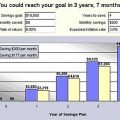The insurance industry and government have a long tradition of working together in a social contract to provide relatively seamless compensation to citizens who suffer devastating losses of property. The insurance industry takes most of the risks (e.g., fire, theft, windstorm). Government mitigates others through public policies such as land-use laws, regulations, and zoning that prohibit people from building in high-hazard areas such as flood plains. For the thin band of situations that fall between insured perils and prohibited activities, the provincial government provides a limited amount of compensation through the Disaster Financial Assistance (DFA) program. When its costs exceed a predetermined threshold per capita of the affected population, the provincial government may request financial assistance from the federal Disaster Financial Assistance Arrangements program. These requests must be made by the province within six months of the end of the event.
BC province has a program, Disaster Financial Assistance (DFA) program. The provincial government may declare the event eligible for DFA, following a disaster. Once declared, the DFA program may compensate individuals for essential uninsurable losses.
What are the essential uninsurable losses?
Look, the essential uninsurable losses. They are essential to your home, livelihood or community service.
It does not pay for:
- Loss or damage for which you could have obtained insurance
- Recreational or seasonal residences
- Luxury goods
- Land that has been lost through erosion
- Landscaping
How much help is available?
In general:
- If your claim is accepted, DFA will compensate you for 80% of the total eligible damage that exceeds $1,000 to a maximum claim of $30,000.
- Your claim can not exceed the cost to replace or repair essential items and property to their immediate pre-disaster condition.
Do you eligible for DFA?
You are eligible for DFA assistance if items essential to your principal residence, business, farm or charitable organization have been damaged in an eligible disaster, and if you are a:
- Homeowner
- Residential tenant
- Small business
- Farm owner
- Charitable organization
- Local government
There are some limitation or restriction on DFA.
Disaster Financial Assistance is not available for wildfire losses.
Eligibility
- Disaster Financial Assistance is only available for provincial disasters after the provincial government has declared them eligible.
- The provincial government works closely with local governments to determine if and when an event should be eligible.
- Private sector damage must be from an event that is uninsurable, such as overland flooding.
- Insurable damages in the private sector from wildfires, earthquakes, snow load, wind storms, sewer or sump pit back-up, water entry from above ground (including roofs, windows or other areas of the building), are NOT eligible for DFA.
- Damages from certain landslides may be eligible if it can be shown that the landslide is the direct result of heavy rainfall or other sudden catastrophic event, and not caused by pre-existing slope instability.
Recently, a lot of insurers or insurance company start to offer new coverage from 2018. It is overland flooding.
For example, if your insurance broker asks you if you want to purchase the coverage of overland flooding on renewal. You choose not to buy it. The DFA may not eligible to you.
Definition:
Overland flooding:
This is a type of flood that results from the level of water outside of your dwelling rising, allowing water to enter your home. That can be a result of water levels rising in the rivers due to rain or extensive volumes of melted snow, or overflow of dams and channels. This type of flooding is in general not covered in Canada and insurance companies will most likely decline your claims.
Reference:
https://www2.gov.bc.ca/gov/content/safety/emergency-preparedness-response-recovery/emergency-response-and-recovery/disaster-financial-assistance
